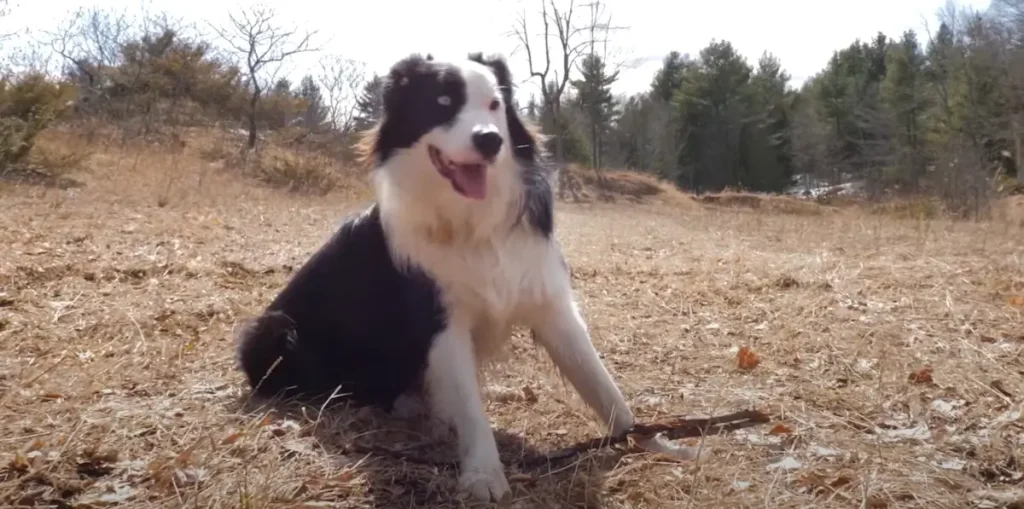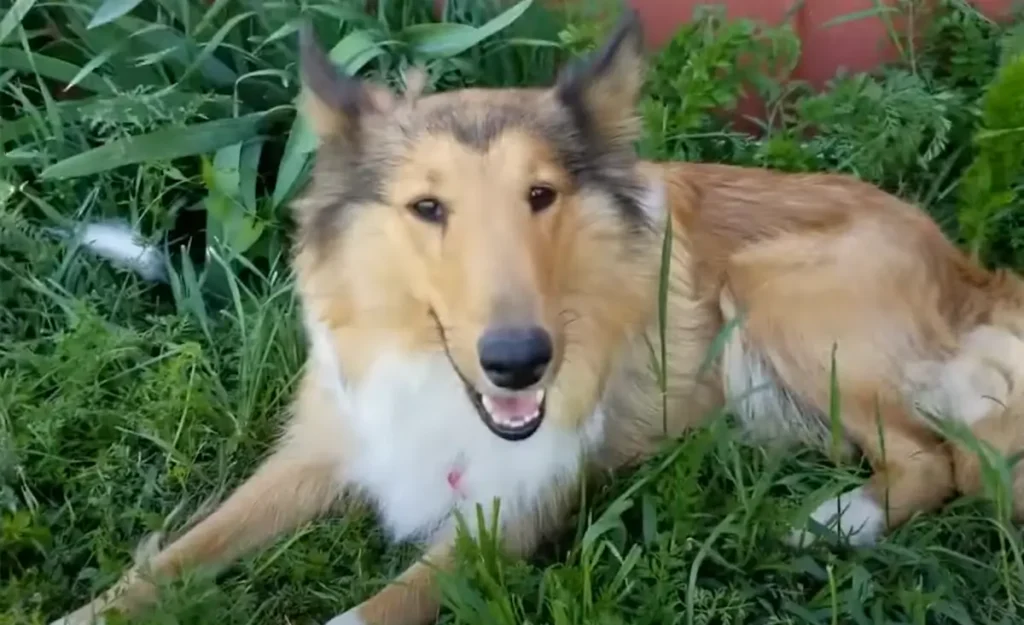Imagine, if you will, a dog that multitasks better than you, herding sheep, catching frisbees, and offering psychological support all before breakfast; that’s the Collie for you.
You’ve probably seen them elegantly trotting through fields or gracing your television screens with Lassie-like nobility, but there’s more to these dogs than their glamorous coats and Hollywood reputation. Known for their sharp intelligence and gentle temperament, Collies are not just a shepherd’s best friend but also a versatile family companion. They possess an uncanny ability to communicate with their human counterparts, making them highly trainable and eager to please.
Yet, for all their skills and amiable nature, they also come with a set of needs and quirks you should be aware of. Stick with us, and you’ll discover the depths of the Collie’s character and the secrets behind their legendary herding prowess, which may influence your next big decision on bringing a four-legged friend into your home.
- Noise Level
- Energy
- Sociability
- Trainability
- Care
- Health
Overall
Summary
The Collie breed is known for its moderate noise level, moderate to high energy, strong sociability, high trainability, moderate care needs, and generally good health.
Collie: Traits, Temperament, and Care Guide
Collies exhibit a blend of elegance and loyalty, characterized by their graceful demeanor and an instinctive drive to protect their families.
As intelligent dogs with herding instincts, they require consistent exercise and mental stimulation.
Early socialization mitigates shyness, ensuring they integrate well into your ideal family.
Whether sporting a rough or smooth coat, be mindful of their energy levels and potential health problems, addressing each with positive reinforcement techniques.
Exploring the Characteristics of the Collie
When examining collies’ characteristics, one must consider their dual-natured coats, which come in rough and smooth varieties. Both require different grooming strategies to maintain their distinct elegance.
| Coat Type | Grooming Needs | Exercise |
|---|---|---|
| Rough | More frequent | High |
| Smooth | Less demanding | High |
| Both | Regular checks | Vital |
Collies’ temperament blends protectiveness with sensitivity, demanding environments free from stress to nurture their innate herding skills.
Collie: A Comprehensive Profile and Guide
As you consider adding a Collie to your family, it’s important to understand the breed’s comprehensive profile.
Assessing their temperament indicates they’re intelligent and sensitive, requiring a thoughtful approach to training and socialization.
Their herding skills are innate, but directing this instinct productively demands consistent, engaging exercises.
Everything You Need to Know
Delving into the comprehensive profile of Collies, you’ll discover a breed esteemed for its intelligence, elegance, and herding prowess. Collies embody both a rich Scottish heritage and a versatile skill set for contemporary canine roles.
Key traits include:
- Exceptional herding skills due to their instinctual drive.
- An amiable temperament, making them friendly dogs.
- A high intelligence that facilitates effective training and exercise regimens.
Discovering the Temperament
Peeling back the layers of a Collie’s temperament reveals a breed that combines intelligence with profound sensitivity, demanding a nuanced approach to their social and training needs.
Collies are extremely sensitive dogs; both Rough Collie and Smooth Collies are easy to train with lots of praise and respond well to gentle guidance.
However, their high energy and herding skills can lead to neurotic behaviors without consistent, empathetic reinforcement.

Collie: Is It a Good Fit for Families?
You must consider a Collie’s temperament when assessing its compatibility with your family.
Their gentle nature pairs well with children, though their sensitivity calls for careful socialization.
If you seek a trainable, devoted pet, the intelligent Collie may be the ideal addition to your household.
Assessing Collie’s Compatibility with Families and Kids
When assessing the Collie’s compatibility with families and kids, it’s clear that their protective nature and affinity for children make them an excellent choice for family life.
Collies make great family dogs because they are:
- A good fit with children, enjoying the role of a protective companion.
- Sensitive dogs that need training to manage their herding instincts.
- Extremely intelligent, requiring mental stimulation to prevent behavior problems.
As pet parents, you’ll find Collies to be great companions that need a lot of exercise, and you should be vigilant for health issues like Collie eye anomaly.
Collie’s Versatility Explored
Collies exemplify remarkable versatility. They adeptly balance their herding instincts with a capacity for companionship and adaptability to various roles within a family or work environment.
Originating from the Scottish Highlands, they’re American Kennel Club recognized, performing in dog sports with ease.
Whether smooth or rough, collies are great family dogs, endorsed by the Collie Club of America for their reduced prey drive and affinity for the northern lifestyle.
Collie Obedience Techniques
As you approach Collie obedience techniques, it’s crucial to prioritize positive reinforcement; treats and praise have proven to be effective motivators that enhance learning.
To maintain your Collie’s interest in training, integrate mental challenges and consistent routines into your sessions.
Effective Training Strategies
To maximize your Collie’s learning potential, initiate training with positive reinforcement, pairing obedience exercises with delicious rewards to foster a pleasant and productive learning environment.
| Strategy | Description |
|---|---|
| Positive Reinforcement | Use treats to reward basic obedience, ensuring a healthy and happy Collie. |
| Consistency & Structure | Make sure to practice regularly, whether with a puppy or adult dog. |
| Professional Guidance | Seek certified trainers from reputable breeders to fine-tune techniques. |
Every dog, especially extremely intelligent breeds like Collies, need a lot of structured training to thrive.
Exercise and Grooming Needs
Understanding Collies’ exercise and grooming needs is crucial for maintaining their physical and mental health. Collies shed and require a lot of grooming—rough coats need brushing several times a week to prevent matting, while smooth, short coats also need regular attention.
They need to live actively, with enough exercise to satisfy their agile nature and prevent boredom and stress-related behaviors.

Health Considerations
If you’re considering a Collie as your companion, it’s crucial to be aware of the breed’s susceptibility to certain health conditions. You’ll need to monitor for signs of Collie Eye Anomaly and Collie Nose, both genetic issues that can impact your dog’s quality of life.
Moreover, regular veterinary check-ups can help manage potential hereditary diseases like hip dysplasia and ensure a healthier lifespan for your Collie.
Common Health Issues and Lifespan
Collies typically enjoy a lifespan of 10 to 14 years. However, they are susceptible to specific health issues that prospective owners should consider. It’s important to note that while the average Collie is a picture of health and temperament, they can face hip dysplasia, where the hip joint is malformed. Collie Eye Anomaly and Collie Nose are also concerns. Rescue organizations often provide support for these conditions.
Is Collie the Right Pet for You?
When considering a Collie as your next pet, assess whether you can provide the consistent companionship and mental engagement this intelligent breed thrives on. Collies tend to be great family dogs, eager to please their owners. However, choosing the right dog means recognizing that while Collies have a low prey drive and strong herding skills, they’re individuals with unique temperaments.
Ensure a Collie is a good fit for your lifestyle.
Alternatives for Collie: Intelligent and Loyal Medium to Large Herding Breeds
For those who love the Collie’s intelligence and loyalty, these medium to large herding breeds offer a similar combination of smartness and devotion.
| Similar Dogs | Short Description |
|---|---|
| Shetland Sheepdog | Smaller herding breed, known for its intelligence and loyalty. |
| Border Collie | Highly intelligent and athletic, excellent for herding and agility sports. |
| Australian Shepherd | A versatile and energetic breed, great for herding and dog sports. |
| Belgian Malinois | Highly trainable and active, often used in demanding roles like police work. |
| Welsh Corgi | A compact breed with a strong herding instinct and playful nature. |
Conclusion
In conclusion, as a prospective or current collie owner, it’s essential to recognize that while these dogs boast a remarkable herding aptitude, they require dedicated care.
Interestingly, collies are among the top ten most intelligent dog breeds, reflecting their trainability and cognitive skills.
Ensure their needs for companionship, mental stimulation, and grooming are met to maintain their well-being.
Your effort will be rewarded with a loyal, affectionate, and well-adjusted family member.
Frequently Asked Questions
What Is the Personality of a Collie?
Collies are intelligent companions with a gentle demeanor. They’re loyal guardians who affectionately bond with you, and their sensitive nature makes them responsive learners. Expect energetic playfulness and graceful agility in these alert watchdogs.
What Is Herding Behavior in Border Collies?
Herding behavior in Border Collies showcases their canine intelligence through instinctive actions like eye stalking and crouching posture, essential for stock management. They’re adept at flock maneuvering, responding to silent commands, and exhibiting drive control.
What Is the Behavior of a Collie Dog?
Your collie’s intelligence shines through in their obedience training, yet their exercise needs and playful antics keep you on your toes. They’re social and protective and thrive on family interaction, with uniquely their communication.
Are Collies Good Herding Dogs?
Yes, collies excel at herding due to their intelligence, agility, and strong work ethic. They respond well to training techniques, understand flock management, and thrive in a shepherd partnership that fulfills their exercise requirements.
